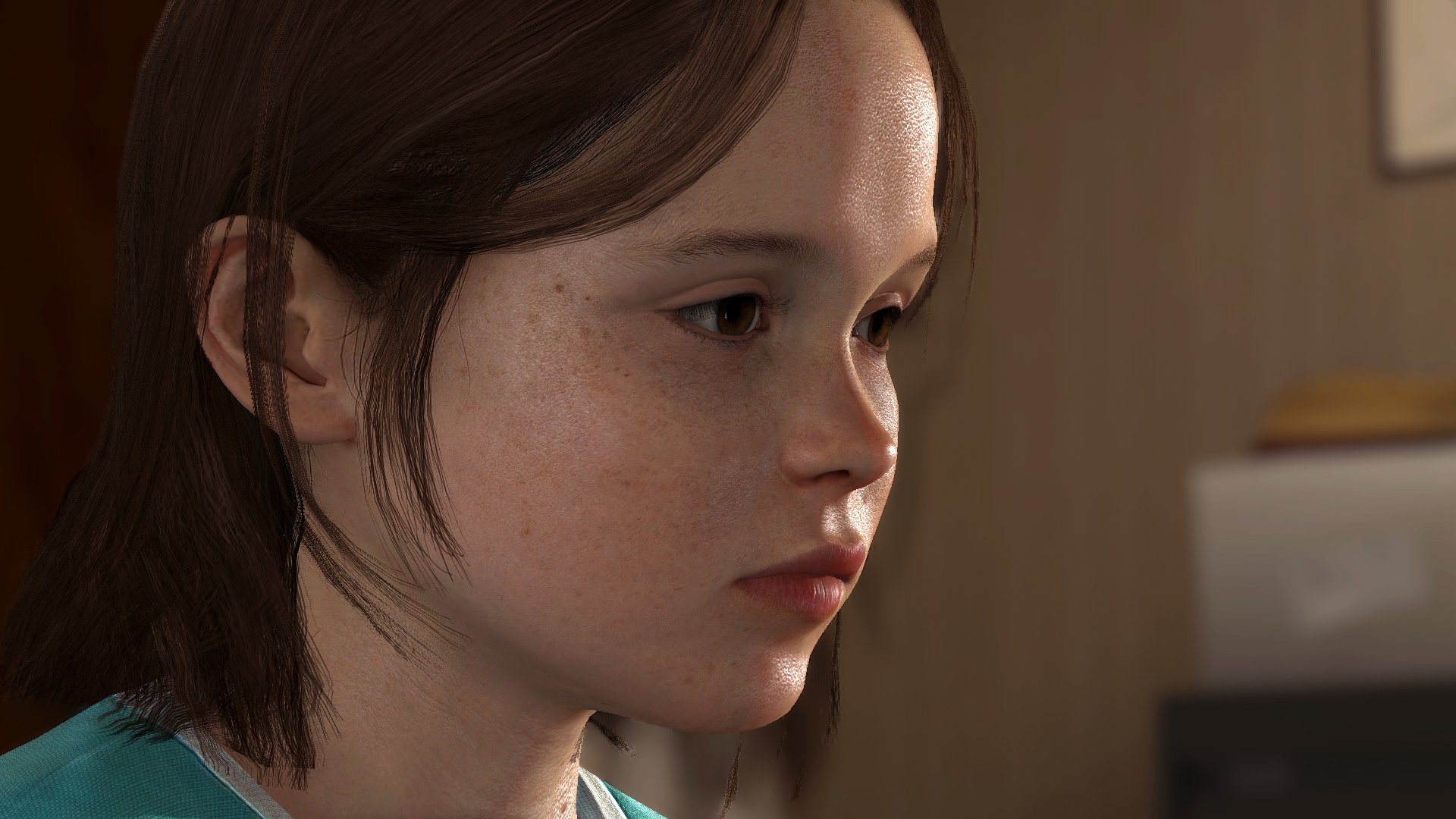Beyond: Two Souls is the latest game from Quantic Dream, and a significant leap forward in terms of performance capture in video games, it's just a shame it had to be attached to such an uneven and frustrating game. The game follows Jodie Holmes, played wonderfully by Ellen Page, as a girl with a mysterious entity intrinsically connected to her since birth. This entity, named Aiden, is mischievous and highly protective of Jodie. What follows is an in-depth look at her life's journey as well as an exploration into the realm Aiden's more malevolent brethren live. Beyond plays very much like Quantic Dream's previous release, Heavy Rain, with ever present button prompts and clunky character control. Disappointing in its non-advancement, Beyond attempts to delve deep into a characters psyche but trips up indulging in every whim the creative team thought interesting.
While there are some incredibly compelling moments throughout, Beyond Two Souls is poorly written and inconsistent as it fails to pack the emotional punch it so desperately attempts to doll out. A non-linear story makes the already near incomprehensible plot even more disjointed and while providing a sort of highlight reel of Jodie's life it can be quite jarring switching between these significant moments of her life, as her opinions and beliefs all change off-screen. The game also seems to be an excuse for David Cage to design anything and everything he has ever wanted CIA, ghosts, hobos, but the less is more mentality would have kept the experience more focused, instead of the slapdash whirlwind that is the final product. Beyond is at its best when the weight of its phenomenal performances are on display, boosted by real actors, both Ellen Page and Willem Dafoe give impressively subtle performances that sell an otherwise ridiculous zigzagging script.
 At certain times during the game you can switch to Aiden, who, as a floating spirit can manipulate certain objects in the environments and even bestow Jodie with a few choice powers like a protective shield, or more actively aggressive abilities such as asphyxiation. Aiden frequently intervenes at Jodie's request, another limitation placed on an already deceptively choice riddled game. Aiden while all powerful and ever present cannot be summoned at will, there are instances where the powerful entity would seem helpful but the player is rebuffed by a non-responsive switch button. Aiden will most often be used in navigation puzzles, to help Jodie progress through areas she normally wouldn't be able to only to disappear to protect her from armed guerrilla forces.
At certain times during the game you can switch to Aiden, who, as a floating spirit can manipulate certain objects in the environments and even bestow Jodie with a few choice powers like a protective shield, or more actively aggressive abilities such as asphyxiation. Aiden frequently intervenes at Jodie's request, another limitation placed on an already deceptively choice riddled game. Aiden while all powerful and ever present cannot be summoned at will, there are instances where the powerful entity would seem helpful but the player is rebuffed by a non-responsive switch button. Aiden will most often be used in navigation puzzles, to help Jodie progress through areas she normally wouldn't be able to only to disappear to protect her from armed guerrilla forces.Beyond: Two Souls is occasionally stunning, with ground breaking performances and some incredible visuals but the sloppy storytelling betray the cinematic illusion. The game is frustrating as David Cage seems more keen on indulging his every interest rather than crafting a focused and compelling game. While wonky controls and illusions of choice coupled with a convoluted plot mitigate any real connection a player might have. Beyond almost succeeds on the shoulders of the performances and graphics alone but uneven storytelling and self-indulgent game design gnaw at the player all the way up to the eye roll inducing finale.
(2 out of 5)




No comments:
Post a Comment